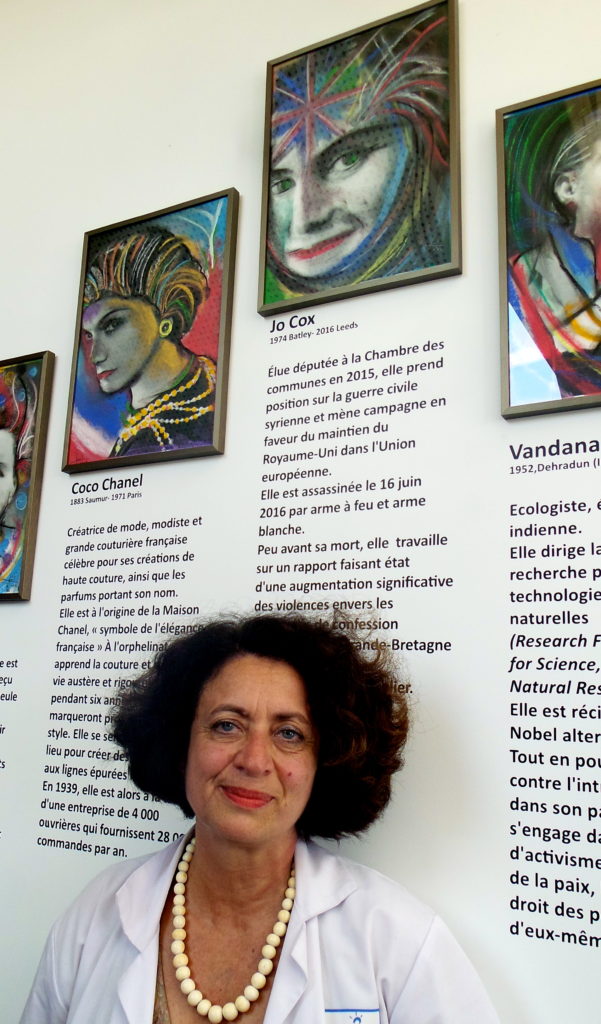
With Ghada Hatem holding, Inna Modja cuts the ribbon
Two years ago Ghada Hatem, head of OBGYN at the Delafontaine Hospital, in Saint Denis, envisioned a Women’s House in Saint Denis, in the heart of the suburb of Paris that symbolizes immigration tensions and social precarity in France. Last Friday, the Women’s House was formally inaugurated.
Born in Lebanon, Ghada Hatem was fifteen when the civil war started in 1975: “It is probably what gave rise to a medical and social vocation in me.” She came to France to study medicine and choosing OBGYN as a specialty came naturally. She has always imagined exercising her “art” within a team.
Thanks to extraordinary teamwork, the Women’s House project went to completion. The day of the inauguration, a passionate and committed crowd was present along with some officials, all of them inspired by the project.
The Malian/French artist and singer Inna Modja has decided to be the benefactress of the Women’s House of Saint Denis. In her commitment to social justice, she has used her artistic expression to denounce female cutting, linking it to her engagement to end violence against women in general. As she explained, after she was cut in Mali when she was 5 against the will of her parents, “I fought to heal myself,” she remembered, first through surgery and then “step by step, I found the energy to become a woman again.”
Ghada and her colleagues received the surgical training to “repair” women who have been cut but as Ghada explains the repair is both physical and psychological and it is never a full restitution, the “scar” remains.
The House will offer many ways to address the trauma including support groups with the collaboration of Inna Modja.
While located within the hospital compound, the House has an independent entrance open to the street. Its role is to allow a free, intimate access to women who have already experienced all sorts of violence and humiliations: a place for them and with them. The need is enormous. The OBGYN department receives about 120 different nationalities and amid the 4500 births and 1000 abortions every year, and about 14% of the women had been cut. The medical system is not enough to help these women to recover their dignity.
This house should serve as a model to be reproduced everywhere it is needed.
Let’s listen to Ghada Hatem’s interview.

Ghada Hatem
(Interview and photos by Brigitte Marti)